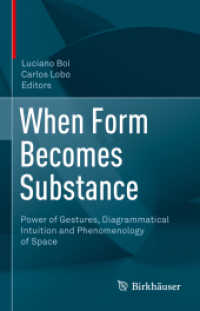Full Description
Modern history is marked by a relentless sequence of upheavals—health, ecological, financial, humanitarian, and beyond. Far from being temporary disruptions, these events reveal a paradox: they are not anomalies, but enduring features of a system governed through perpetual instability. This form of governance sustains and reinforces racial and patriarchal capitalism._x000D_
_x000D_
Examining the mechanisms of crisis sheds light on the necropolitics of power—the ways states exert control over life itself. The language of crisis often obscures the systemic oppression underlying these events, legitimizing the erosion of rights and freedoms while intensifying surveillance, profiling, and arbitrary arrests. Black and racialized people, Indigenous communities, as well as refugees and migrants are frequently among those most impacted._x000D_
_x000D_
Through an analysis of diverse examples—healthcare, migration, Indigenous rights, academic freedom, and Islamophobia—this work delves into the construction and rhetoric of "crisis." It explores how populist and supremacist ideologies shape public discourse and perpetuate patterns of visibility and ignorance, with profound sociological effects on marginalized communities._x000D_
_x000D_
The English and French editions, each with different content and authors, complete one another.
Contents
GENERAL INTRODUCTION
Leila Benhadjoudja, Christina Clark-Kazak and Stéphanie Garneau
1. How to define a crisis? Looking back at a concept
2. Thinking about "crises" through the lens of racial capitalism
3. Ways of thinking about crises and migrant, Black, indigenous and racialized populations
4. Overview of the English volume
5. Overview of the French volume
THE THEORETICAL AND PRACTICAL POTENTIAL OF 'ACOMPAÑAMIENTO' FOR RESEARCH WITH PEOPLE MARGINALISED THROUGH IMMIGRATION CONTROLS
Valentina Glockner, Walter Flores, Elaine Chase, Jennifer Allsopp, Ian Warwick, Deborah Zion, Brad Blitz, Ricardo Muniz-Trejo, Penelope Van Tuyl and Theresa Cheng
1. Purpose of the paper
2. Migration, deportations and marginalisation in Central America
2.1.Understanding acompañamiento
2.2.Bringing acompañamiento to research
3. Positionality and motivation
3.1.Relationship of acompañamiento to particular research approaches
4. The ethics of acompañamiento
4.1.Implications for co-creating knowledge
4.2.Concluding thoughts
VIVE LA FRANCE! EXALTING FRENCH NATIONALISM THROUGH NEWS MEDIA NARRATIVES OF CALAIS MIGRANTS
Maritza Felices-Luna
1. The politics of (in)visibility: foregrounding and erasing migrants in Calais
2. News media narratives of migrant 'crises'
3. Walking away from crisis as intelligibility towards crisis as constitutive through narrative analysis
4. Unpacking the figured worlds
4.1.French solidarity
4.2.France under attack
4.3.The points where both figured worlds meet
5. The French national as custodian of French values and guardian of French sovereignty
THE VENEZUELAN "MIGRATORY CRISIS" IN THE ECUADORIAN CONTEXT: PROBLEMATIZING IMMIGRANTS AS VICTIMS AND THREATS
Martha Alexandra Vargas Aguirre
1. Methodology
2. Context
3. Managing Venezuelan immigration as a crisis
4. Conclusion
TOP MANTA: BARCELONA'S UNIONIZED MANTEROS IN THEIR STRUGGLE FOR RECOGNITION AND REDISTRIBUTION
Tatiana Llaguno and Marina Gomá
1. Context
2. My dream was not to become a mantero: I am a fisherman
3. El cayuco: Resisting necropolitical deathscapes
4. Weaving networks of solidarity: Re-shaping the city and reframing political belonging
5. Conclusion
6. Acknowledgements
COVID-19 IN MONTREAL: SYSTEMIC IMPACT ON PRECARIOUS IM/MIGRANT WORKERS AND THEIR ORGANIZING RESPONSES
Manuel Salamanca Cardona
1. Setting the framework for the crisis in Montreal
2. Experiencing the crisis in terms of work, barriers to social protection, and migratory status
3. Highlighting systemic effects of the pandemic, auto-organizing and questioning the State exclusion
4. Self-organizing, critics and co-existence with the State and its institutions in times of pandemic
5. Conclusion
'DESIGNER MIGRANT' OR 'BACKDOOR MIGRANT': CHALLENGES OF INTERNATIONAL STUDENT IDENTITY IN CANADA
Tahseen Chowdhury and Chiedza Pasipanodya
1. Methodology
2. Context
3. Discussion
3.1.Colonial Grammar and the Myths of Western Supremacy
3.2.The Manufactured Crisis of Scarcity, Competition, and Fraud
3.3.The Business and Branding of International Education
3.4.The Grammar of Internationalization
3.5.Student, Migrant, or Worker? Crisis by Design
4. Conclusion








